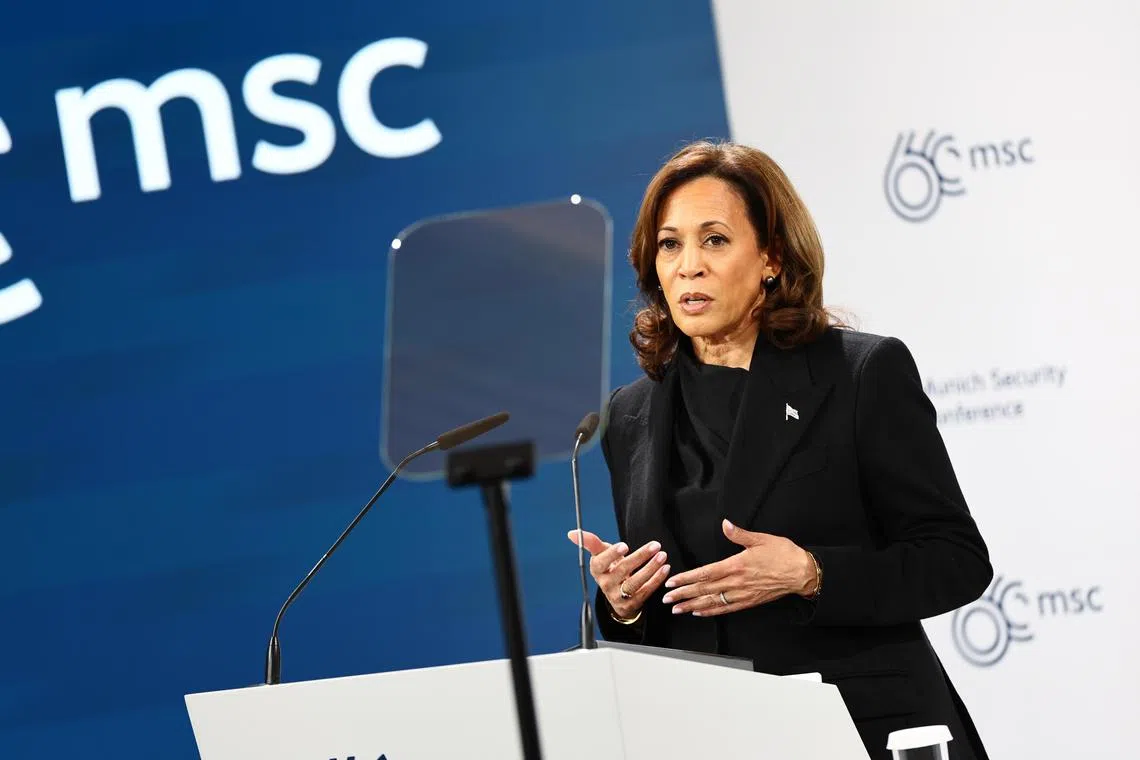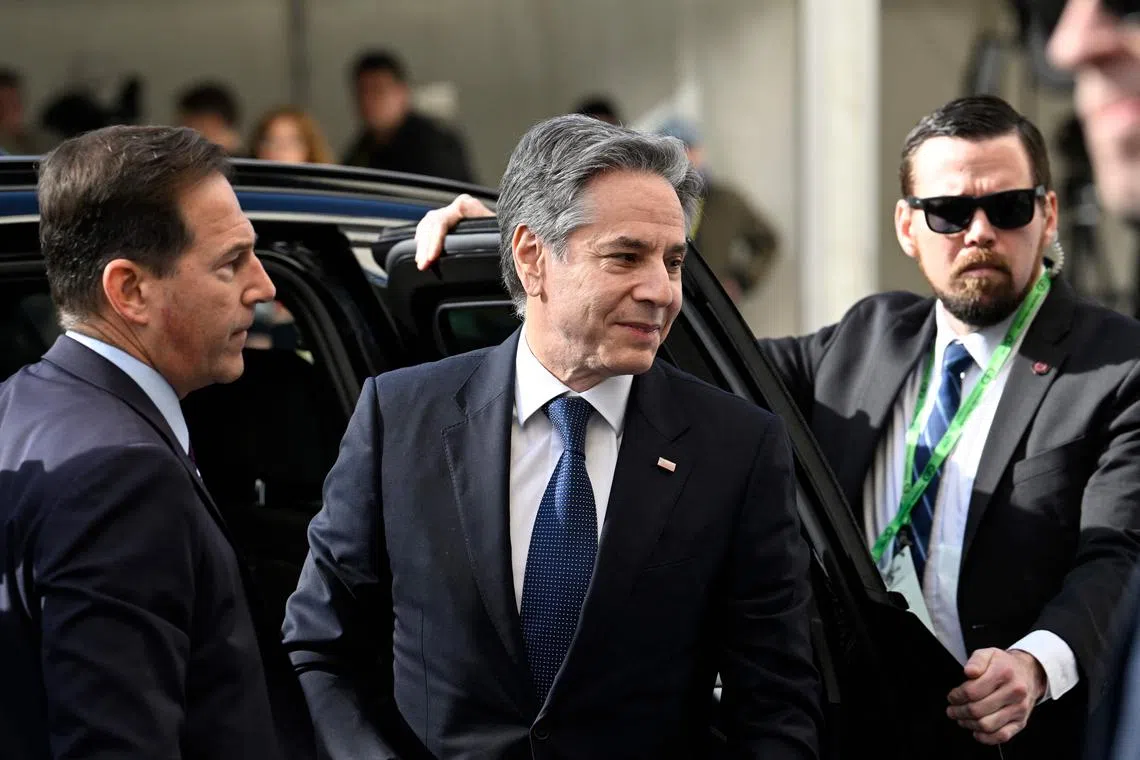Trump's Nato threat casts pall over Munich security meet
Sign up now: Get ST's newsletters delivered to your inbox

US Vice-President Kamala Harris delivers a speech at the Munich Security Conference, in Germany.
PHOTO: EPA-EFE
MUNICH, Germany - US Vice-President Kamala Harris on Feb 16 sought to reassure allies rattled by the possible return of Donald Trump to the White House that the US will continue to take a leading role in the world.
The question of the United States’ commitment to its allies was high on the agenda at the Munich Security Conference following remarks made by Trump on the campaign trail on Feb 10.
“We must stand with our allies and that is what represents the ideals of America,” Ms Harris said, in a speech to 180 top Western diplomats and military officials at the annual event.
The former president suggested the US should abandon Nato allies who did not meet their defence spending commitments.
The proposal sent shivers down the spine of European officials for whom the turbulence caused by Trump’s first term in office were still fresh.
But Harris tried to calm the nerves ahead of the US elections in November.
“In these unsettled times, it is clear America cannot retreat, America must stand strong for democracy,” Harris said, adding that it would be “foolish” for the US to isolate itself.
“America will continue to lead,” she vowed.
‘European pillar’
Trump’s outburst put a question mark over future US willingness to defend its allies,
In response, Nato Secretary-General Jens Stoltenberg warned Trump not to “undermine” the alliance members’ collective security, while the European Union’s top diplomat, Mr Josep Borrell, said Nato could not be an alliance “a la carte”.
Trump’s words have also fired a new debate within Europe over how best to organise its own defence.
German Foreign Minister Annalena Baerbock on Feb 16 called on the EU to do more on common defence and security to “strengthen the European pillar of Nato”.
EU President Ursula von der Leyen also backed the ideas of creating a European defence commissioner following the European Parliament elections in June.
“People watching the US appear very nervous,” Dr Comfort Ero, the head of think-tank Crisis Group, told AFP in an interview.
“The US is still seen as an influential player... But I think increasingly there’s alarm, there’s concern, there is uneasiness, about the uncertainty, the unpredictability, just the polarisation, the division,” Dr Ero said.
Ukraine support
Beyond Nato, allies are also concerned about the United States’ continued support for Ukraine, seen as vital to sustaining its war effort against Russia.
“A Trump victory would likely end White House support for Ukraine,” Ms Rachel Tausendfreund, from the German Marshall Fund of the United States wrote recently.
US support for Ukraine has already fallen foul of divisions in Congress, with a US$60 billion (S$80 billion) package of military aid held up by Republican lawmakers.
But Ms Harris said abandoning Kyiv would be a “gift to (Russian President) Vladimir Putin”.
“We will work to secure critical weapons and resources that Ukraine so badly needs,” she pledged in Munich.

US Secretary of State Antony Blinken (centre) arrives at the venue for the 60th Munich Security Conference.
PHOTO: AFP
US Secretary of State Antony Blinken, who arrived in Munich on Feb 15 after a stopover in Albania, will also be on a mission to gainsay Trump’s message in bilateral meetings with European colleagues.
“Elections are elections, Trump is Trump,” the Albanian Prime Minister Edi Rama said on Feb 15 next to Mr Blinken.
“I don’t think that Nato will be weakened. I don’t think the United States will shy away from their role and from their leadership,” he said. AFP


